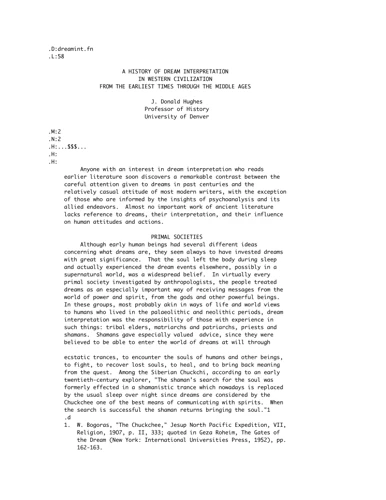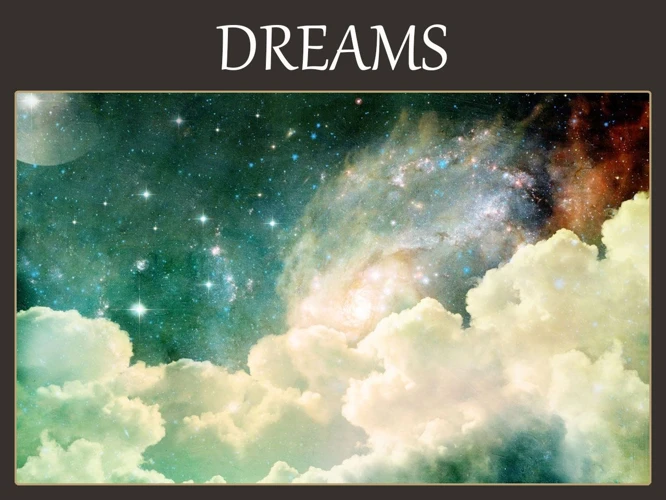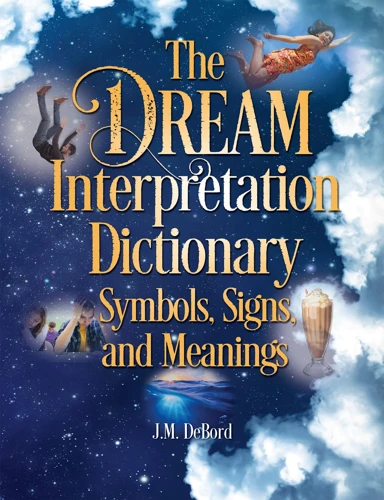Dreams have been a source of fascination and curiosity for humanity since ancient times. People have always been intrigued by the hidden meanings behind their dreams, trying to decipher the symbols and messages they contain. This quest for understanding has led to the creation of dream dictionaries, which claim to provide interpretation for the various symbols and images that appear in our dreams. However, while dream dictionaries can be useful in helping us make sense of our dreams, they also have their limitations. In this article, we’ll delve into the history of dream interpretation, exploring how dream symbols were used in ancient civilizations, how they were interpreted in the Middle Ages, and how dream dictionaries came to be in the modern era. We’ll also examine the benefits and drawbacks of using dream dictionaries, and explore whether they truly hold the key to unlocking the mysteries of our dreams.
Ancient dream interpretation

Dream interpretation has been a fascinating topic since the dawn of civilization. In fact, dreams were considered to be a divine form of communication in many ancient cultures. The interpretation of dreams and their symbols has evolved throughout history, from early civilizations such as the Egyptians and Greeks, to the medieval era, and finally to modern times. Studying the interpretation of dreams in ancient times can reveal much about the beliefs, values, and ways of life of our predecessors. Let’s delve into the intriguing world of ancient dream interpretation.
The use of dream symbols in ancient civilizations
Dream interpretation has been practiced since ancient times, with several ancient civilizations attaching significance to their dreams. In fact, dream interpretation played a vital role in the lives of ancient people, as they believed that dreams were messages from the gods or spirits.
In ancient civilizations, dreams were believed to:
| Symbol | Meaning |
|---|---|
| Egyptian Civilization |
|
| Greek Civilization |
|
| Roman Civilization |
|
It is evident that dreams were considered to be important sources of information in ancient civilizations. Symbols within dreams were interpreted to help people make decisions, predict the future, and provide insights into their own mental states. The significance of dreams and their symbols paved the way for the evolution of dream interpretation throughout the centuries.
The role of interpreters in ancient dream interpretation
In ancient civilizations, dreams were considered to be an important source of messages from the divine realm. However, interpreting those dreams was not a task for everyone. The role of interpreters was significant in ancient dream interpretation.
These interpreters were specially trained individuals, who possessed knowledge and skills to decode the symbols and hidden meanings behind dreams. They were not only proficient in the language of dreams but also well-versed in the culture and mythology of those civilizations.
To better understand the role of interpreters, we can highlight their responsibilities in the following table:
| Responsibilities of interpreters in ancient dream interpretation |
|---|
| 1. Attentively listening to the dreamer: The interpreter had to accurately capture the dream as narrated by the dreamer. Any missing details could result in an incorrect interpretation. |
| 2. Identifying the symbols: The interpreter had to recognize the symbols and metaphors used in the dream. This required knowledge of cultural and mythological backgrounds. |
| 3. Analyzing the symbols: The interpreter had to decipher the meaning behind each symbol and how they related to each other in the dream. This often involved understanding the context and cultural significance of the symbols. |
| 4. Considering the dreamer’s context: The interpreter had to take into account the personal context of the dreamer, such as their emotions, experiences, and social status, to ensure the interpretation was tailored to the dreamer’s situation. |
| 5. Communicating the interpretation: The interpreter had to convey the interpretation of the dream in an understandable and meaningful way to the dreamer, often using metaphors or poetic language. |
As we can see from the table, the role of interpreters was complex and multifaceted. Their ability to understand the nuances of dreams and communicate their interpretations effectively was crucial in ancient dream interpretation.
Medieval dream interpretation

Dream interpretation during the medieval period was a unique hybrid of religious and mystical beliefs. It was during this time that the study of dreams became more structured, and dream interpretation books were developed. The analysis of dreams during the medieval era was heavily influenced by religious concepts, and interpreters believed that dreams could hold the keys to the mysteries of the universe. Let’s delve deeper into this fascinating period of dream interpretation history.
The emergence of dream interpretation books in medieval times
During medieval times, the interpretation of dreams became more sophisticated and complex. Dream interpretation books began to gain popularity, with the earliest known example being the Oneirocritica by Artemidorus, a Greek author who lived in the 2nd century AD. However, it wasn’t until the Middle Ages that dream interpretation books became more widespread.
One such book was the Visio Karoli Grossi, a dream diary written by Charlemagne’s court scholar, Einhard. This book documented the dreams of the famous ruler and attempted to interpret their meaning. Other dream interpretation books from this time period included the Book of the Prophet Daniel and the Key of Solomon, which both attempted to provide answers to the mysteries of dreams.
These books were heavily influenced by religious beliefs and symbolism, with interpretations often relying on interpretations of biblical stories and characters. For example, dreaming about St. Peter might be interpreted as a sign of protection and guidance from the saint.
Interestingly, some of these dream interpretation books were also used for divination, with individuals consulting them to predict the future or gain insight into their destiny. This practice was often frowned upon by religious authorities, who saw it as a form of witchcraft or heresy.
Despite this criticism, dream interpretation books continued to be popular throughout the medieval period and beyond. They played an important role in shaping how people understood and interpreted their dreams, even as new scientific and psychological methods emerged in the modern era.
The impact of religion on dream interpretation
Religion played a significant role in shaping dream interpretation during the medieval times. Different religions had their own perspectives on dreams and their interpretations. Here is an overview of the impact of religion on dream interpretation:
| Religion | Impact on Dream Interpretation |
|---|---|
| Christianity | Christianity saw dreams as a way that God used to communicate with people. Christians believed that dreams could be used as a divination tool to seek guidance from God. However, they also believed that dreams could be deceptive and could be used by the devil to mislead people. So, the interpretation of dreams was subject to the interpretation of religious leaders, who were considered to have the ability to discern between true and false dreams. |
| Islam | Islam reflected an even more significant emphasis on dream interpretation. Muslims believed that dreams were a form of divine communication, and the interpretation of dreams was considered a highly respected profession. In Islam, dreams were regarded as a way for individuals to gain insight into their lives and to seek guidance from Allah. Dream interpretation was believed to be a gift from Allah and required special skills and knowledge to interpret dreams correctly. |
| Judaism | Judaism also considered dreams as a divine communication tool, but the interpretation of dreams was considered less important than in Islam and Christianity. However, Jews believed that dreams were symbolic and that they could be used for guidance and insight into their lives. The interpretation of dreams was done by rabbis, who were considered to be wise and learned men. |
Religion had a profound influence on dream interpretation during the medieval times. The interpretations of dreams were closely connected to religious beliefs and were considered a way to communicate with the divine. The interpretations of dreams were done by religious leaders who had the knowledge and ability to discern what dreams meant. The impact of religion on dream interpretation has continued to influence the interpretation of dreams to this day.
Modern dream interpretation

Dream interpretation has fascinated humans for centuries, and as society evolved, so did the techniques and tools used to unlock the meanings behind our nocturnal adventures. One such tool is the dream dictionary, but how reliable and accurate is it really? To explore this question, we delve into the history of modern dream interpretation and the factors that have influenced its development. From the emergence of dream dictionaries in the 19th century to the impact of psychology on modern interpretations, there is much to unpack when it comes to understanding how we interpret our dreams today.
The rise of dream dictionaries in the 19th century
During the 19th century, there was a significant rise in the popularity of dream dictionaries. These books aimed to provide interpretations of common symbols and themes that appear in one’s dreams.
One of the earliest and most influential dream dictionaries was written by Frenchman, Nostradamus. Although he was better known for his prophecies, his dream dictionary gained widespread popularity during the 1800s and paved the way for many similar publications.
Around the same time, Sigmund Freud was developing his theories on the interpretation of dreams. His work greatly influenced the approach taken by many dream dictionaries during this period. This shift saw an increased focus on the emotional and psychological significance of dreams, as opposed to relying solely on symbolism.
Dream dictionaries also saw a surge in popularity as a result of the spiritualist movement which emerged in the mid-1800s. Many individuals sought spiritual guidance through the interpretation of their dreams, and dream dictionaries provided a readily available resource for this purpose.
Despite their widespread use, critics of dream dictionaries argued that they only provided generalized interpretations of symbols and ignored the highly personal nature of one’s dreams.
The rise of dream dictionaries in the 19th century marks a significant shift in the interpretation of dreams. These books aimed to provide a new level of insight into the mysterious world of dreams and continue to be a popular resource for those seeking to decode the messages of their subconscious mind.
The influence of psychology on modern dream interpretation
In modern times, psychology has greatly influenced the interpretation of dreams. Sigmund Freud, a famous psychologist, was one of the pioneers in using dreams to understand the human psyche. He believed that dreams were a reflection of a person’s unconscious desires and repressed emotions.
Another influential psychologist in the field of dreams interpretation was Carl Jung, who believed that dreams were a way for the unconscious to communicate with the conscious mind. He believed that dreams held symbolic meaning that could help people understand their innermost thoughts and feelings.
The theories of Freud and Jung, among others, have influenced the creation of modern dream dictionaries. These dictionaries use symbolism to interpret the meaning behind certain objects, people, or actions in dreams. For example, a dream about a snake could symbolize temptation or danger, while dreaming about flying could represent a sense of freedom or control.
However, some psychologists argue that dream interpretation should not rely solely on symbolism. They believe that every individual has their own unique understanding of the world around them, which affects the way they interpret their dreams. Psychologists who take this approach believe that dreams should be analyzed in the context of a person’s life and experiences, rather than relying on a set of predefined symbols.
The influence of psychology on dream interpretation has led to a greater understanding of the human mind and the way it works. While dream dictionaries may be a useful tool in interpreting dreams, it is important to remember that each person’s dreams are unique and may hold different meanings for them.
| Psychologists | Theories |
| Sigmund Freud | Believed that dreams were a reflection of a person’s unconscious desires and repressed emotions. |
| Carl Jung | Believed that dreams were a way for the unconscious to communicate with the conscious mind. He believed that dreams held symbolic meaning that could help people understand their innermost thoughts and feelings. |
| Others psychologists | Argue that dream interpretation should not rely solely on symbolism. They believe that dreams should be analyzed in the context of a person’s life and experiences, rather than relying on a set of predefined symbols. |
The pros and cons of dream dictionaries
As with any tool for understanding the mysteries of the unconscious mind, dream dictionaries have their fair share of both advantages and disadvantages. On one hand, dream dictionaries can provide much-needed insight and clarity into the symbolism of our dreams. However, on the other hand, they can also promote a limited and generic interpretation of our unique dream experiences. With this in mind, let us explore the potential benefits and drawbacks of using dream dictionaries.
Advantages of using dream dictionaries
Dream dictionaries have become popular in recent times, as they provide people with insights into what their dreams might be trying to tell them. There are several advantages of using dream dictionaries, which are listed below:
- Understanding symbolic meanings: Dreams often use symbols to convey messages, and dream dictionaries help in understanding them better.
- Personalized interpretations: While dream symbols might have general meanings, dream dictionaries offer personalized interpretations based on different contexts and experiences.
- Awareness of unconscious thoughts: Dreams are said to be a reflection of a person’s unconscious thoughts and desires. Dream dictionaries help people become more aware of their unconscious mind and its workings.
- Encouraging introspection: Dream dictionaries encourage people to reflect on their dreams and draw connections to their waking life, which can lead to personal growth and self-awareness.
- Self-discovery: Dream interpretation can offer insights into a person’s personality, desires, and fears, providing an opportunity for self-discovery and exploration.
While dream dictionaries can be helpful, it is important to keep in mind that they should not be the only source of interpretation. Dreams are highly subjective, and the same symbol could mean different things to different people. It is important to consider one’s own experiences and emotions while interpreting dreams, rather than relying solely on a dream dictionary.
Disadvantages of using dream dictionaries
While dream dictionaries may be helpful in some cases, there are also some disadvantages to relying on them too heavily. Here are some of the potential downsides to using dream dictionaries:
- Generalizations: Dream dictionaries often present generalized meanings for certain symbols, which may not apply to everyone. For example, a dream dictionary might list snakes as a symbol of danger or fear, but someone who loves snakes or works with them professionally may not have the same interpretation.
- Context matters: The context in which a symbol appears in a dream can greatly impact its meaning. Dream dictionaries don’t always take this into account or provide enough context to accurately interpret a dream. For example, dreaming about a gun could represent danger or power, but the exact meaning would depend on the rest of the dream and the dreamer’s personal associations with guns.
- Personal experience: Dreams are highly personal experiences and the symbols that appear in them can have unique meanings that only make sense to the dreamer. Dream dictionaries can easily overlook this personal aspect of dream interpretation.
- Limiting interpretations: When relying too heavily on dream dictionaries, people may limit their own interpretations of their dreams. Instead of using a dream dictionary as a starting point, it’s important to first consider personal associations and feelings about the dream symbols and then use the dictionary as a supplement, not a replacement for personal reflection.
While dream dictionaries can be helpful in providing possible meanings for dream symbols, it’s important to use them with caution and to remember that personal associations and context also play a major role in dream interpretation.
Conclusion
After delving into the history of dream interpretation, it’s evident that dream dictionaries have undergone a significant evolution throughout the ages. From ancient civilizations to modern times, dream interpretation has played an important role in people’s lives. Dream symbols were often believed to hold important meanings and messages from the divine, and interpreters were highly valued for their ability to decipher these symbols.
In medieval times, dream interpretation became more widespread with the emergence of dream interpretation books. However, the influence of religion on dream interpretation often led to conflicting interpretations, and the accuracy of these interpretations was often questionable.
The 19th century saw the rise of dream dictionaries as we know them today, with general interpretations for common dream symbols. The influence of psychology on dream interpretation has since led to a deeper understanding of the psychological significance of dreams.
Dream dictionaries have their advantages, such as providing a starting point for people to interpret their dreams and gain deeper self-knowledge. However, it’s important to remember that dream symbols are highly personal and subjective, and relying solely on a dream dictionary for interpretation can lead to oversimplification and misunderstanding. It’s best to approach dream interpretation with an open mind and a willingness to explore one’s own unique perspective and emotions.
In conclusion, while dream dictionaries have their place in the world of dream interpretation, they should be used as a tool rather than a definitive guide. The mysteries behind dream interpretation may never be fully understood, but the journey of self-discovery through dream analysis is one worth taking.
Frequently Asked Questions
How long have people been interpreting dreams?
People have been interpreting dreams for thousands of years, with evidence of dream interpretation dating back to ancient civilizations.
What symbols were commonly used in ancient dream interpretation?
Ancient civilizations often used symbols like animals, objects, and natural elements to interpret dreams.
What was the role of dream interpreters in ancient times?
Dream interpreters were highly respected individuals who were believed to possess the ability to communicate with the gods and provide insight into the future.
What impact did religion have on medieval dream interpretation?
Religion played a significant role in medieval dream interpretation, with many dream symbols being interpreted as signs from God or the devil.
When did dream dictionaries first emerge?
Dream dictionaries first emerged in the 19th century, with the publication of numerous books claiming to provide meanings for various dream symbols.
What is the influence of psychology on modern dream interpretation?
Modern dream interpretation has been heavily influenced by the field of psychology, with many experts believing that dreams are reflections of our unconscious thoughts and emotions.
What are some advantages of using dream dictionaries?
Using a dream dictionary can help individuals gain insight into their dreams and provide a starting point for self-reflection.
What are some disadvantages of using dream dictionaries?
Some experts believe that dream dictionaries can oversimplify dream symbolism and lead to inaccurate interpretations.
Can dream interpretation be scientifically proven?
Dream interpretation is a subjective practice and cannot be scientifically proven, but it can still provide valuable insights for individuals.
Should individuals rely solely on dream dictionaries for dream interpretation?
No, dream dictionaries should be used as a starting point for reflection and not relied upon as the sole source of dream interpretation.








